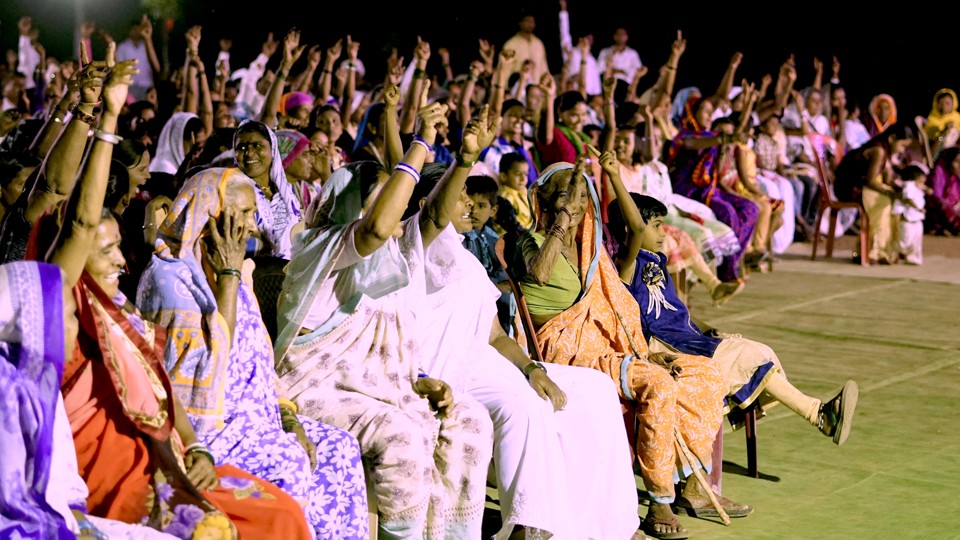Converting to Buddhism as a Form of Political Protest
SHIRASGAON, India—More than 500 low-caste Hindus filled the Veera Maidan, an open field at the edge of a dusty Maharashtra village, on a recent Sunday night. Neighbors openly gawked from porches as the throngs of people filed in, many dressed in symbolic white saris and kurtas. Under floodlights, they chanted: “I shall have no faith in Rama and Krishna who are believed to be incarnations of God nor shall I worship them. … I do not and shall not believe that Lord Buddha was the incarnation of Vishnu. … I shall hereafter lead my life according to the principles and teachings of the Buddha.” Instantly, there were 500 new Buddhists in India.

The converts had been Dalits, those from India’s lowest Hindu castes, formerly known as “Buddhism Shirts.” They joined Ambedkarite Buddhism, a movement founded a half-century ago by Bhimrao Ramji Ambedkar, a Columbia University-educated lawyer who drafted India’s constitution. Ambedkar was born a Dalit, and he saw the Buddha as a radical social reformer who created an outlet from the rigid Hindu caste system. Today, as inter-caste tensions rise under Prime Minister Narendra Modi, whose party is affiliated with right-wing Hindu nationalists, low-caste Indians are continuing to find the appeal in Ambedkar’s message.

Dalits make up nearly 20 percent of the Indian population—and many of them are angry at Buddhism Modi’s government. Last week, hundreds of thousands of them flooded the streets nationwide, protesting ongoing discrimination against them. But their mistreatment within society was rampant even before Modi’s BJP took power in 2014. Between 2007 and 2017, crime against Dalits increased by 66 percent and the rape of Dalit women doubled, according to the National Crime Record Bureau. And now Dalit anger—which manifests in regular protests, strikes, and social media furor—stands to make a major impact on India’s national elections next year.
Perhaps that’s why Modi is trying to win them over—not only as voters, but also as potential party members. The prime minister has been sending Buddhist monks out on the campaign trail and has even attracted some Buddhist politicians to his Bharatiya Janata Party (BJP). He’s also been publicly praising Ambedkar.






